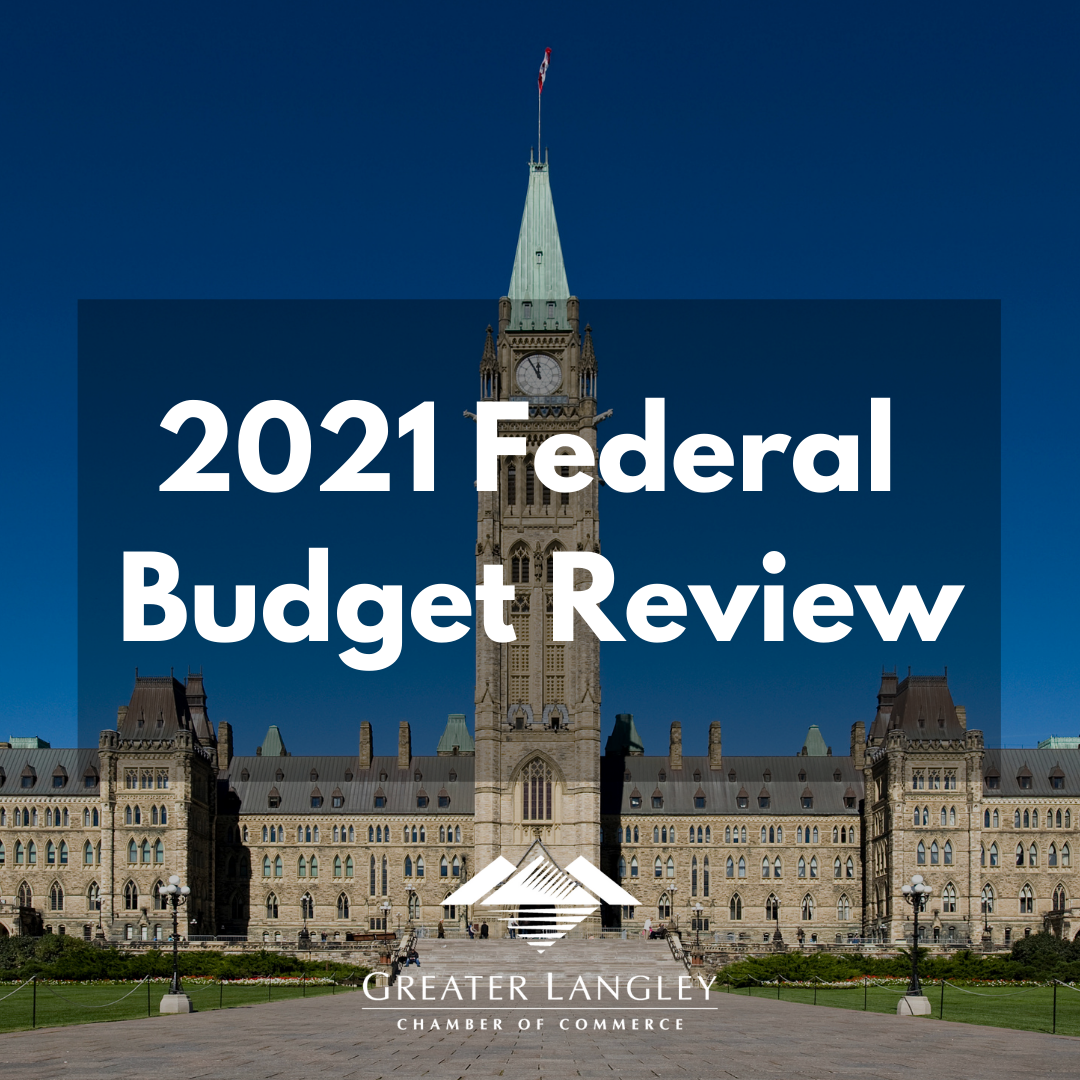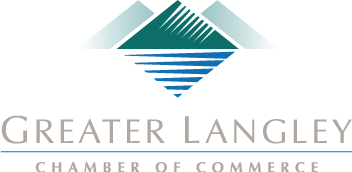2021 Federal Budget
2021 Federal Budget

This week has been about budgets. First up was the Federal Budget for 2021. The 700+ page document outlines a wide assortment of measures touching all areas of the economy. The budget projects a staggering deficit of $354 billion. In total, nearly $700 billion of new debt is projected between 2019 and 2025.
In addition to extended important business support such as the wage subsidy, Budget 2021 introduces a new hiring program that will help businesses accelerate economic recovery. The Budget also outlines a few positive investments for British Columbia that should pay dividends over the long-term including new funding for childcare, an additional $1.9 billion for the National Trade Corridors Fund, needed investments to support housing construction, helping businesses digitize, and the creation of a new regional development agency for British Columbia.
Canada Recovery Hiring Program: Will provide businesses with $595 million to hire employees or increase their wages or hours. The program will run from June to November 2021 to help businesses to hire back laid-off workers. Eligible employers would claim the higher of the Canada Emergency Wage Subsidy or the new proposed subsidy. In both the qualifying period and the baseline period, eligible remuneration for each eligible employee would be subject to a maximum of $1,129 per week. Between June and August, the hiring subsidy rate is 50% and then it declines to 20% between then and November.
Childcare: Up to $27.2 billion over five years, starting in 2021-22 to achieve:
- A 50 per cent reduction in average fees for regulated early learning and childcare in all provinces outside of Quebec, to be delivered before or by the end of 2022.
- An average of $10 a day by 2025-26 for all regulated childcare spaces in Canada.
- Ongoing annual growth in quality affordable childcare spaces across the country, building on the approximately 40,000 new spaces already created through previous federal investments.
- Improving and expanding before- and after-school care.
New Regional Development Agency for B.C.: Budget 2021 proposes to create a new agency for British Columbia and to provide $553.1 million over five years, starting in 2021-22, and $110.6 million ongoing, to support the new agency and ensure businesses in B.C. can grow and create good jobs for British Columbians.
Canada Digital Adoption Program: $4 billion over four years, starting in 2021-22, to help small and medium-sized businesses to digitize and take advantage of e-commerce opportunities and supporting them to adopt new digital technologies, through advisory expertise for technology planning and financing options.
Innovation and Adoption: Budget 2021 proposes to provide:
- $2.2 billion over seven years, and $511.4 million ongoing to support innovative projects across the economy, including in the life sciences, automotive, aerospace, and agriculture sectors.
- $2.6 billion on a cash basis over four years, starting in 2021-22, to the Business Development Bank of Canada to help small and medium-sized businesses finance technology adoption.
- Budget 2021 proposes to provide $960 million over three years, beginning in 2021-22, to Employment and Social Development Canada for a new Sectoral Workforce Solutions Program. Working primarily with sector associations and employers, funding would help design and deliver training that is relevant to the needs of businesses, especially small and medium-sized businesses, and to their employees. The program will help employers looking for skilled workers in sectors such as health, clean energy, and construction. This funding would also help businesses recruit and retain a diverse and inclusive workforce
- The budget also proposes $470 million over three years, beginning in 2021-22, to establish a new Apprenticeship Service to help 55,000 first year apprentices in construction and manufacturing Red Seal trades connect with opportunities at small and medium-sized employers. Employers may be eligible to receive up to $5,000 for all first-year apprenticeship opportunities to pay for upfront costs such as salaries and training.
Credit card transaction fees: The government will engage with key stakeholders to work towards three objectives:
- Lower the average overall cost of interchange fees for merchants
- Ensure that small businesses benefit from pricing that is similar to large businesses
- Protect existing rewards points of consumers
Tourism: To assist the sectors’ recovery, the government proposes to make available a further package of support, totalling $1 billion over three years, starting in 2021-22. This includes the establishment of a $500 million Tourism Relief Fund, to support local tourism businesses in adapting their products and services to public health measures and other investments that will help them recover from the pandemic and position themselves for future growth. $200 million to support major festivals and new funding for marketing efforts.
Travel: Budget 2021 proposes to provide $82.5 million in 2021-22 to Transport Canada to support major Canadian airports in making investments in COVID- 19 testing infrastructure.
Budget 2021 also proposes to provide $105.3 million over five years, starting in 2021-22, with $28.7 million in remaining amortization and $10.2 million per year ongoing to Transport Canada to collaborate with international partners to further advance the Known Traveller Digital Identity pilot project, which will test advanced technologies to facilitate touchless and secure air travel.
EXTENSION OF SUPPORT PROGRAMS
The Canada Emergency Wage Subsidy: Budget 2021 proposes to extend the wage subsidy until September 25, 2021 (set to expire July 4, 2021). It also proposes to gradually decrease the subsidy rate, beginning July 4, 2021. The maximum weekly benefit.
The Canada Emergency Rent Subsidy and Lockdown Support: Budget 2021 proposes to extend the rent subsidy and Lockdown Support until September 25, 2021. It also proposes to gradually decrease the rate of the rent subsidy, beginning July 4, 2021.
Regional Relief and Recovery Fund and Indigenous Business Initiative: Budget 2021 proposes to extend the application deadline for similar support under the Regional Relief and Recovery Fund and the Indigenous Business Initiative until June 30, 2021.
12 additional weeks of Canada Recovery Benefit to a maximum of 50 weeks. The first four of these additional 12 weeks will be paid at $500 per week, the remaining 8 weeks will be paid at $300 per week.
NEW TAX MEASURES
Digital Services Tax: Budget 2021 proposes to implement a Digital Services Tax at a rate of three percent on revenue from digital services that rely on data and content contributions from Canadian users. The tax would apply to large businesses with gross revenue of 750 million euros or more. It would apply as of January 1, 2022, until an acceptable multilateral approach comes into effect.
Vacancy Tax: Effective January 1st, 2022, the government will introduce Canada’s first national tax on vacant property owned by non-residents. This is an annual 1 per cent tax on the value of non-resident, non-Canadian owned residential real estate that is considered to be vacant or underused.
